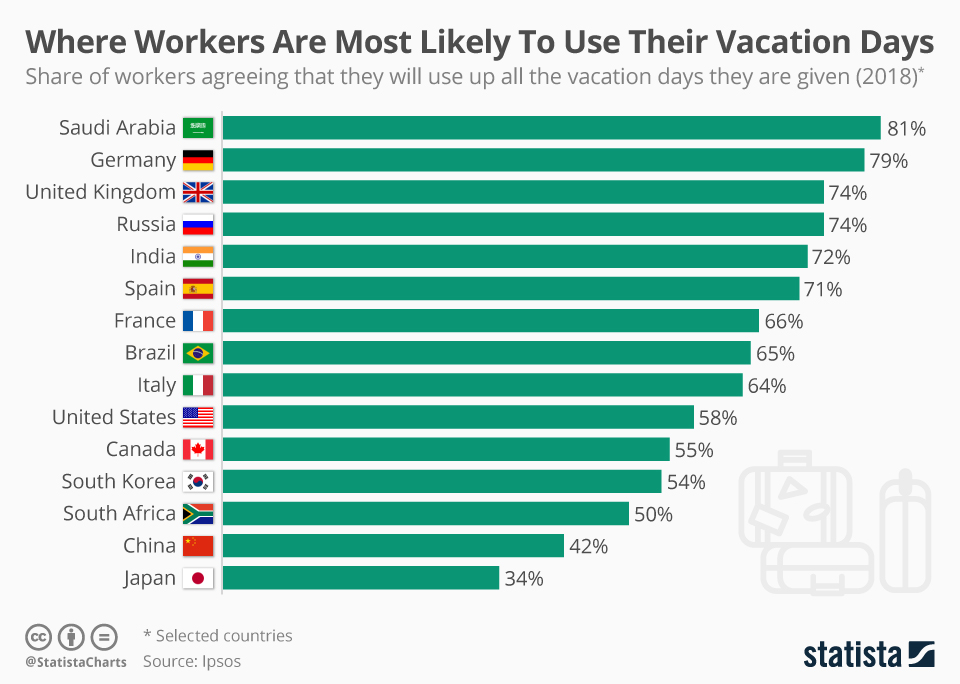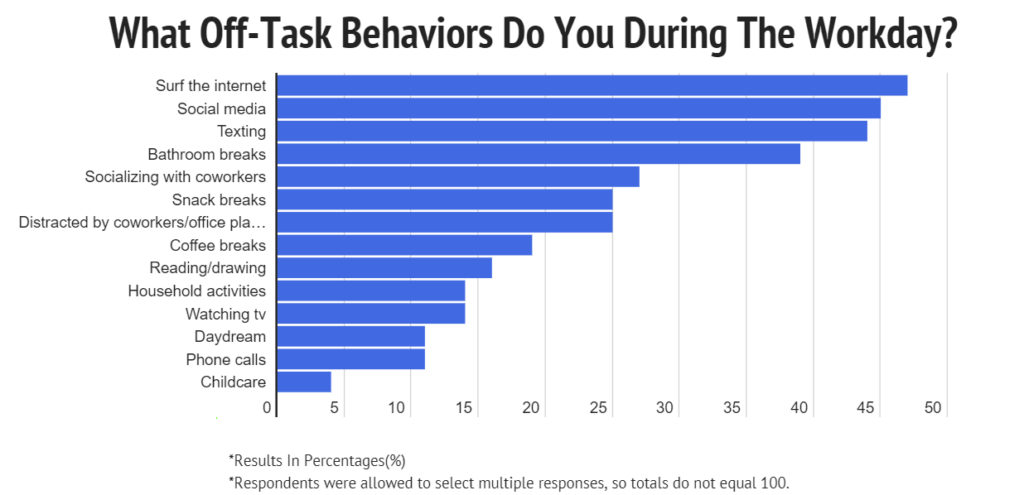We save money so we can take the time to spend it. Some lose sight of this fact.
Few pleasures exude more bang for the buck than vacations.
Americans don’t know what they’re missing. Compared to similarly developed nations, we aren’t close to recharging our potential productivity. 
Data proves vacations reduce stress, play a role in heart disease prevention, improve productivity, and aid in more restful sleep.
Americans believe the more hours we work, the more we get done.
Maybe, but those benefits fall off a cliff after a relatively short period.
Douglas Perry cites the evidence.
The 8-hour workday has been the norm for more than a century, but employee surveys suggest that most people are genuinely productive only for about three hours every day. This has led to calls for the workday to be reduced to five or six hours, with proponents saying it would increase employee wellbeing and productivity.
Often doing more is doing less. Working a twelve-hour day isn’t Working a twelve-hour day.

Source: ZIPPIA
The mental and physical value of vacations is an indisputable fact.
How do we most benefit from these precious breaks from our daily routines?
We recently spent a week vacationing at Montauk Point.
Before leaving, I set my email and phone to out of the office mode, forwarding messages to trusted colleagues.
Not once did I check how the stock market was doing. To nobody’s surprise, it was still there when we came back.
We parked the car and abandoned it until we departed. The condo was within walking distance of the main drag. Dozens of restaurants and shops were minutes away.
The best part -There was no dress code. Everyone was wearing shorts and T-Shirts or something comparable. Throw in a beautiful beach to take long walks and read a good book, and all the scientific benefits of vacations emerge.
Recently the Wall Street Journal published Don’t Try to Have a Perfect Vacation. Have a Relaxing One Instead.
The Journal identified four factors to reach the promised land.
1. Pick the right kind of trip.
2. Ignore expectations
3. Set boundaries around work.
4. Identify a timeout space.
Everyones different. Modify these conditions to your personality.
If you can’t keep away from work, make sure the only time you focus on job-related matters is during a particular time for a limited duration. If crowds and constant movement recharge you, go for it.
Stressful times are bound to emerge. Make sure you have an escape room. Nature often provides the path to tranquility.
Most importantly, don’t let others set your vacation expectations. Avoid putting unrealistic ones for yourself.
Psychologist Lynn Bufka offers these words of wisdom.
Trust your gut and gravitate toward experiences that seem most enjoyable when you imagine them. For one person, a long day on the beach reading is best, while another comes alive thinking about exploring the local culture. Those who are uncomfortable in large crowds, for example, might want to avoid a jam-packed flea market, but might benefit from visiting a local coffee shop.
Creating memorable experiences inside a stock or a bond is impossible.
The same dilemma doesn’t apply to the beach.
Nobody’s irreplaceable. Remember this the next time you hesitate about using all your vacation days.
Less work is more productive work.






